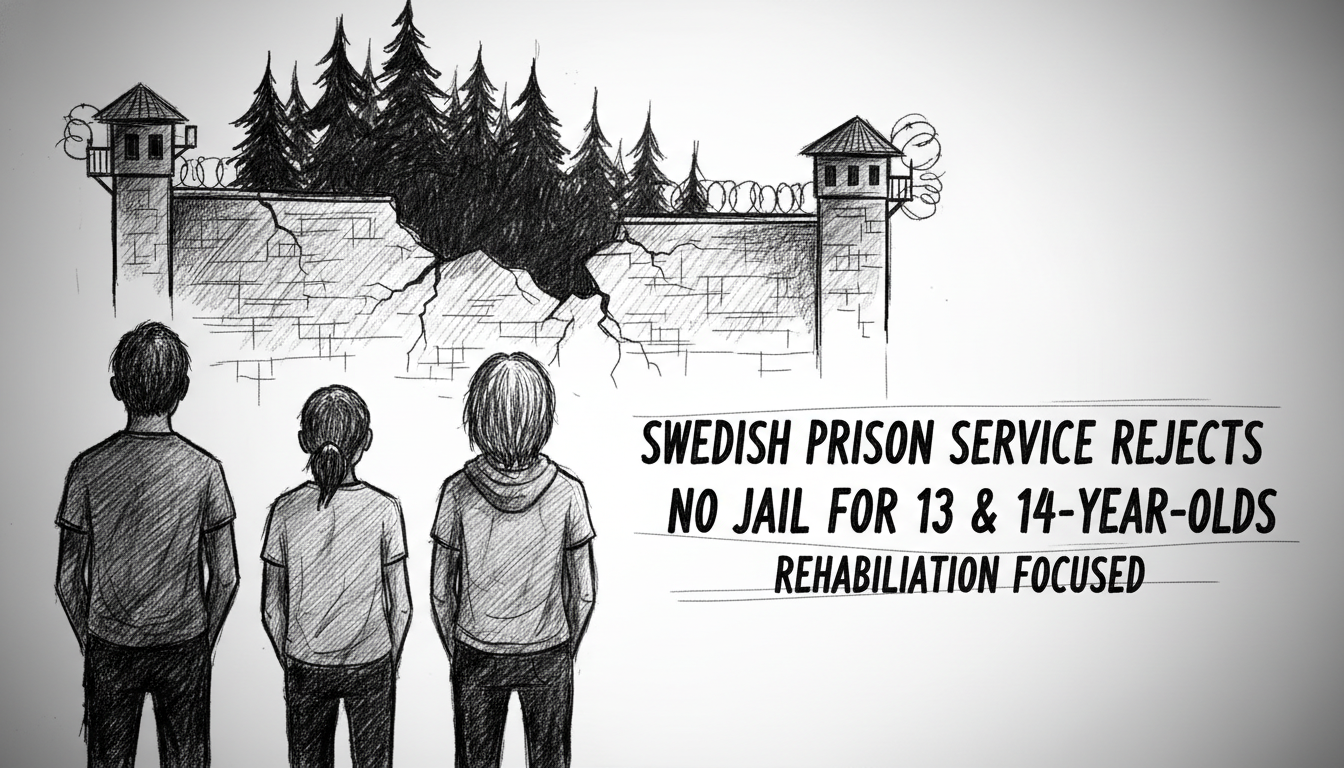The Swedish Prison Service opposes government plans to incarcerate children as young as 13. Officials warn that imprisoning young teenagers could cement criminal identities rather than rehabilitate them. This conflict highlights a fundamental divide in Sweden's approach to youth crime.
Justice Minister Gunnar Strömmer announced in October that the Prison Service's mandate would expand to include housing 13- and 14-year-olds in detention centers and prisons. The minister argued this change would strengthen justice for victims, protect society, and help children leave criminal paths. The government wants prison sentences available for the most serious crimes committed by young teenagers.
Elisabeth Lager, acting legal chief at the Swedish Prison Service, expressed strong reservations. 'The risk becomes that children develop a criminal identity,' she stated. 'Younger people experience much greater negative effects from prison environments.'
The agency submitted an official response rejecting the proposal to accept children in this age group. Lager emphasized that society should intervene with young offenders but focus more on rehabilitation. 'There are other measures for such young people,' she noted.
Research cited by the Prison Service shows younger individuals are more influenced by prison environments. This exposure can worsen mental health problems, impair development, and reduce chances of successful reintegration. The very goal of creating law-abiding citizens might be undermined if children adopt criminal identities during confinement.
Current facilities already struggle to meet requirements for young detainees. Fifteen-year-olds currently share facilities with adults, though rules theoretically prevent contact. The system frequently fails to provide the mandated four hours of social interaction time daily for young people.
Accommodating even younger children would require significant adaptations. 'We won't have time to build new prison spaces by the July 2026 deadline,' Lager explained. 'Initially we would need to use existing spaces differently.'
Young children in detention present unique challenges. They have compulsory education requirements and may be experiencing their first nights away from home. Pre-trial detention periods can be particularly stressful, with limited contact with the outside world.
The Prison Service acknowledges practical difficulties in meeting new demands. 'I wish I could say we'll definitely manage,' Lager admitted. 'We will receive them and then work as hard as we can to fulfill the social interaction requirements.'
This debate reflects broader tensions in Nordic justice systems between punishment and rehabilitation. Sweden has traditionally emphasized rehabilitation, but recent years have seen calls for tougher measures against youth crime. The government's push to lower the incarceration age represents a significant policy shift that experts worry might import problems from more punitive systems.
International research consistently shows incarcerating young teenagers often increases reoffending. Nordic countries have historically maintained low youth incarceration rates compared to other Western nations. This proposal could mark a departure from that approach with uncertain consequences for both young offenders and public safety.

